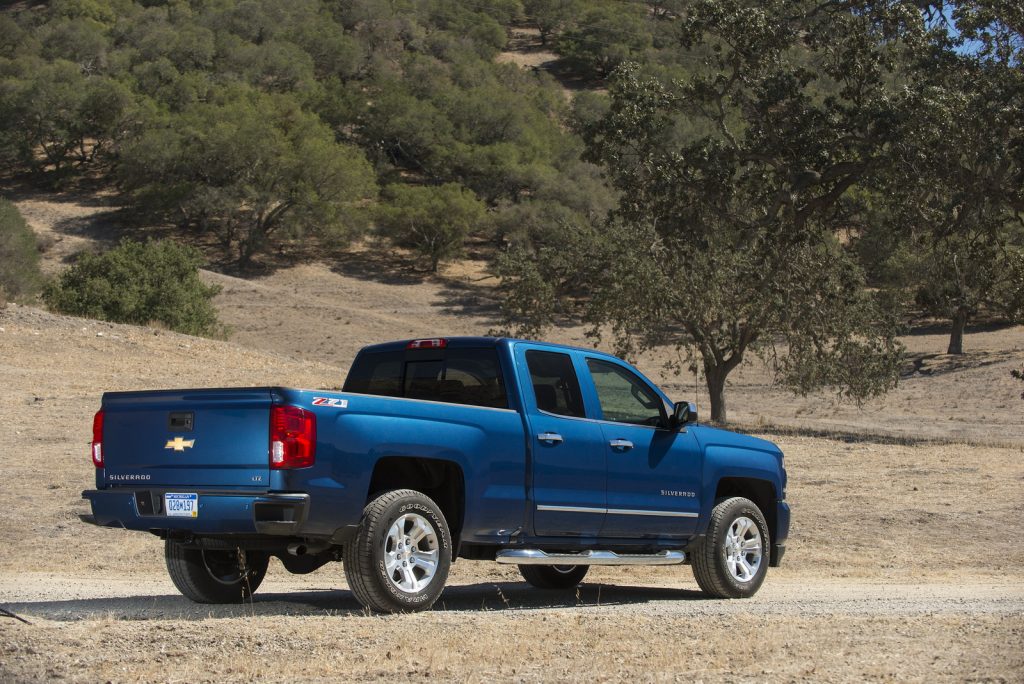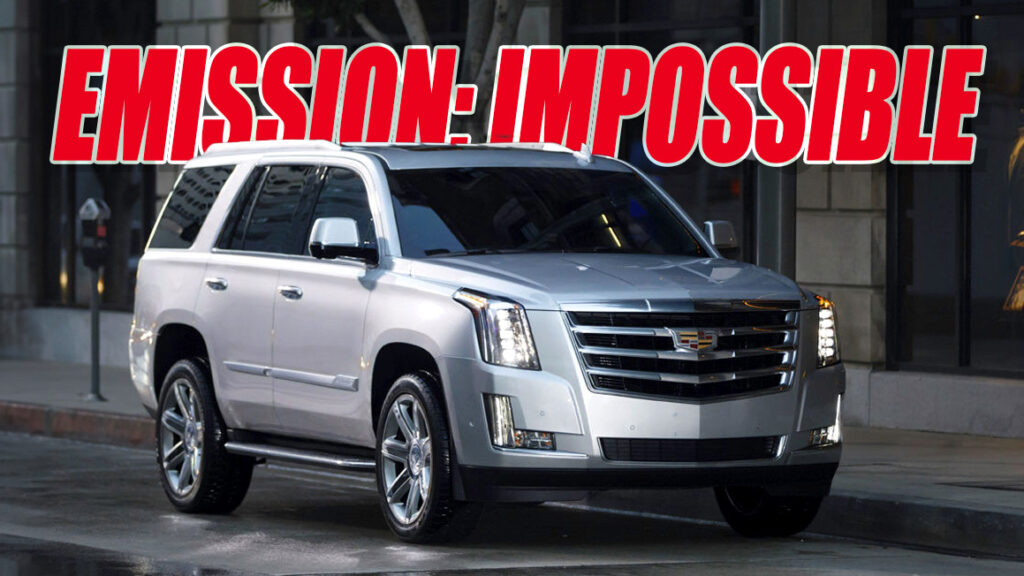- Impacted vehicles were manufactured between the 2012 and 2018 model years.
- GM has also voluntarily retired about 50 million tons of carbon dioxide pollution credits.
- Despite the fine, the manufacturer has not admitted to any wrongdoing.
GM will have to pay more than $145.8 million in penalties for selling approximately 5.9 million vehicles in the U.S. that didn’t comply with emission rules.
Between the 2012 and 2018 model years, GM sold roughly 4.6 million full-sized pickup trucks and SUVs, and 1.3 million midsize SUVs, which the Environmental Protection Agency (EPA) says were emitting more than 10% higher CO2 than GM had claimed.
Read: Ford Backs EPA’s New Emission Regulations Despite Controversy
In addition to paying more than $145.8 million in penalties, GM has voluntarily retired about 50 million tons of carbon dioxide pollution credits it purchased roughly a decade ago for approximately $100 million. The New York Times notes that as the market value of these credits varies, the value of GM’s 50 million credits is now worth around $4.6 billion.
GM has not admitted any wrongdoing and says all its vehicles comply with pollution and mileage certification regulations. According to GM spokesman Bill Grotz, the issue stems from an EPA testing procedure change in 2016.
“We believe this is the best course of action to swiftly resolve outstanding issues with the federal government regarding this matter,” the carmaker said in a statement. “G.M. remains committed to reducing auto emissions and working toward achieving the Administration’s fleet electrification goals.”

Impacted GM models were fitted with the 2.4-liter, 5.3-liter, 6.2-liter, and 4.3-liter engines, and include the likes of the Chevrolet Equinox, Chevrolet Silverado, GMC Sierra, Cadillac Escalade, and GMC Yukon.
This is not the first time GM has had to pay some hefty penalties. Last year, it paid $128.2 million in fuel economy penalties for failing to meet requirements for 2016 and 2017.
“EPA’s vehicle standards depend on strong oversight in order to deliver public health benefits in the real world,” EPA Administrator Michael S. Regan added. “Our investigation has achieved accountability and upholds an important program that’s reducing air pollution and protecting communities across the country.”




